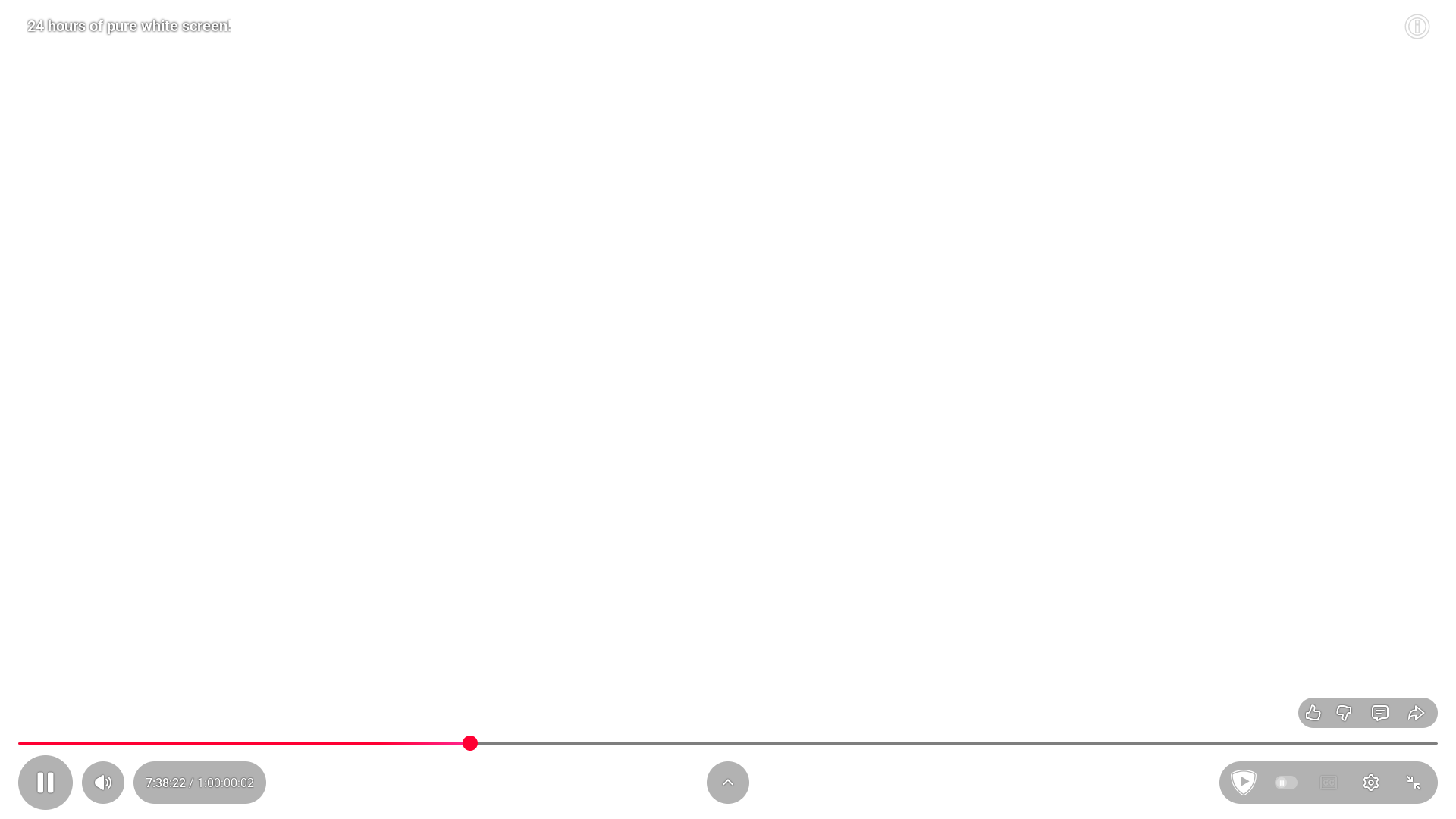31 October 2025
Amateur hour at YouTube - ignorance-based GUI design
Recently, the YouTube player received a visual update. This is what the player looks like now:

If you've spent any time designing or using graphical user interfaces on a computer, you will immediately notice a number of issues with the new user interface.
First of all, the control elements are now translucent, and a lot of low-contrast greys are used. Depending on the video being watched, various parts of the user interface are barely legible; for instance the disabled "CC"-button to configure subtitles can barely be read when the video is white in that region.
Secondly, the buttons now hover at the bottom, they no longer reach all the way into the corner. Taking Fitts's law into consideration, buttons that are placed at the corner of the screen effectively have an infinite size because you cannot overshoot them due to the mouse cursor being constrained to stay within the screen. Placing buttons just shy of the corner of the screen without extending the clickable area all the way to the edge of the screen reduces the buttons' effective size massively and makes them much harder to press. You can no longer flick to the edge and press the button.
These are obvious GUI design mistakes. Everybody knows that text or icons are not legible if the background color is too similar. Such mistakes are prevented with simple rules of thumb. Regarding the placement and sizing of buttons, the original paper by Paul Morris Fitts was published in 1954, and Fitts's law is elementary GUI design knowledge. There is absolutely no excuse not to notice these things in the prototype stage. We are talking about one of the most visited websites on the planet that deploys a GUI that looks and feels like it's been created by a total amateur. And it's not like designing a video player interface requires novel insights, we've been using great video players for decades, YouTube itself had better players in the past.
There are two potential scenarios for why this could have happened. Option number one is that there really isn't anyone working for YouTube who has any clue about GUI design. I believe that this is impossible. It is well known that very capable and knowledgeable developers work for YouTube. Not to mention, YouTube has already been in this business for two decades and has gone through many design iterations of their player. Option number two is that the know-how actually exists within the company, but not a single person who has a clue is empowered to or capable of intervening. Someone came up with this terrible design and this person held so much power that nobody could fix it or prevent it from being deployed like that. Or perhaps speaking up and standing for the right thing would have adverse consequences for one's career. This strikes me as the likelier scenario, since GUI design attracts a lot of egomaniacs who think they can skip all the human-computer interface theory because they have opinions and eyes, which, in their mind, is more than enough qualification to impose their designs with an iron hand.
Whatever the reason for this design mishap may be, the conclusion to draw is that YouTube has now entered the final stage of being a lumbering corporate behemoth. They don't even understand the basics of their own product anymore. The know-how exists, but it can no longer be applied due to structural decay. Steve Jobs described this phenomenon beautifully:
Like with John Sculley. John came from Pepsi Co. And they at most would change their product, you know, once every ten years. I mean, to them a new product was like a a new sized bottle. Right? So if you were a product person, you couldn't change the course of that company very much. So who influences the success of Pepsi Co.? The sales and marketing people. Therefore they were the ones who got promoted and therefore they were the ones that ran the company. Well, for Pepsi Co. that might have been okay, but it turns out the same thing can happen in technology companies that get monopolies. Like, oh, IBM and Xerox. If you were a product person at IBM or Xerox, so you make a better copier or computer. So what? When you have a monopoly market share, the company is not any more successful. So the people that can make the company more successful are sales and marketing people. And they end up running the companies. And the product people get driven out of the decision making forums. And the companies forget what it means to make great products. So, the product sensibility, the product genius, that brought them to that monopolistic position, gets rotted out, by people running these companies who have no conception of a good product versus a bad product. They have no conception of the craftsmanship that's required, to take a good idea and turn it into a good product. And they really have no feeling in their hearts, usually, about wanting to really help the customers. So that's what happened at Xerox, the people at Xerox PARC used to call the people that ran Xerox "tonerheads". - Steve Jobs, The Lost Interview (11 May 2012)
It does leave me wondering how long it will be until YouTube forgets how to host videos. Food for thought, especially if there are videos you care about on this platform.
Post comment
Comments
(no comments yet)